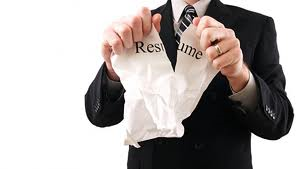Knowing how to write a great CV is so very important and it is one thing job seekers must accomplish. A CV is a mini introduction or snapshot into who you are, what skills you have and the skills you don’t have. It informs your potential employer about your academic background, previous study or qualifications, past employment, your work history and any key achievements in your life or any goals you have set for yourself. If your CV is not the best it can be you can kiss your chances of scoring an interview – or a job goodbye.
Your CV needs to stand out from the rest or it will simply end up in the bin. If your CV isn’t up to scratch it won’t even get your foot in the door.
How to write a great CV is relatively simple – break it down into sections that are separated by either white spaces or boxes – if you have a lot to put on your CV boxes might be better for you. This is simply to provide an employer with a CV that is easy to navigate with sections that can be easily located and referred to.
These simple tips will show you how to write a great CV
- Start with the important information, name, address, contact phone number and e-mail address
- The next section will be your profile – this is just a short over-view of your main skills and is best done as a bullet point list
- The following section depends on whether you have experience or not – for example if you are applying for your first job. If you don’t have much or any experience, list your qualifications first and any work experience you may have had – this includes voluntary work.
- If you have a lot of experience start with your employment history – from your most recent job proceed backwards and add schooling last
- Always use bullet points if you are listing any roles or duties you have performed in previous employment.
- Try using *power words* rather than *I led a small team* instead say *I actively managed and led our sales team to success*
- List any extra skills you may have – such as certificates or extra training
- Finish off with a small personal section, fill this with the things you like to do, any hobbies or interests etc
- Your CV should also contain extra details such as if you have a drivers licence and what sort, if you are married, have children etc
- Keep everything brief and to the point, avoid waffling on and going off topic
- Spell check and proof read everything!
- Double check your dates, how long you were with certain employers etc, an interviewer will be concerned you may be trying to hide something if your dates don’t match up
- Make your CV easy on the eye by using clear headings and sub-headings.


